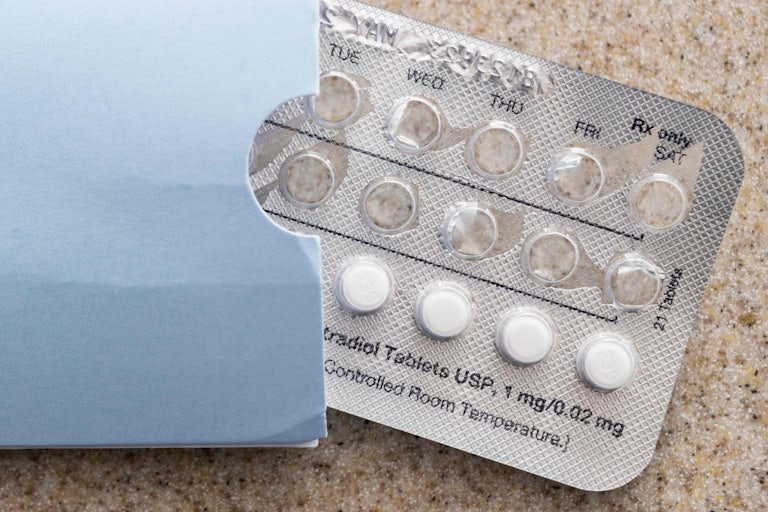An Experimental Male Birth Control Pill Was 100% Effective. It’s About Time.
Researchers say an on-demand, non-hormonal male contraceptive pill could be a real possibility.

An experimental male birth control was found to be 100 percent effective in a study on mice, paving the way for more equitable contraceptive options.
The pill works by preventing sperm from swimming long enough to reach the egg. The study, published Tuesday, found the medication is 100 percent effective for up to an hour after being taken. The pill’s effectiveness dips slightly to 91 percent after three hours, and falls to 78 percent after eight hours.
Nearly all the sperm were able to move normally again after 24 hours. The pill is non-hormonal, meaning it will not affect testosterone levels, which could in turn lower sex drive or cause erectile dysfunction. It also won’t cause side effects such as mood swings, nausea, or headaches.
New drugs can take five to 10 years to hit the markets, depending on whether studies get approved and how much funding they receive. The researchers for this new male contraceptive hope to conduct more animal trials before moving on to humans.
If they are able to start selling their pill, it would be more effective than using either condoms, which are 98 percent effective for humans, or female hormonal contraceptives, which are up to 99 percent effective. The pill is also faster-acting than current female birth control pills, which must be taken for a few weeks before they start working.
The report’s co-author Melanie Balbach, a postdoctoral associate at the Weill Cornell Medical College, said that if the pill works in humans, men could take it as needed and make day-to-day decisions about fertility and family planning.
Frankly, it’s about time.
The report’s authors note that “existing family planning options are inadequate.” The burden of contraception falls disproportionately on women. So much time, energy, and stress goes into preventing pregnancy, not to mention discomfort. Hormonal birth control can cause nasty side effects both in the moment and long-term, ranging from nausea and migraines to increased risk of blood clots and cancer.
Another common option, IUDs, are incredibly painful to get inserted. Even the current abortion laws primarily target cisgender women, despite the fact that they don’t accidentally get pregnant by themselves.
The main reason, it would seem, is that many men simply don’t want to be inconvenienced. Previous experimental forms of male birth control included injections, which many men laughed off on social media.
Another trial is for a contraceptive body gel. Richard Anderson, a professor of Clinical Reproductive Science at the University of Edinburgh, is leading the trial and told the BBC in 2019 that the pharmaceutical industry has dragged its feet on male contraceptives, despite evidence that both men and their female partners wanted the option.
“I think that [the] industry has not been convinced about the potential market,” he said.
Allan Pacey, a professor of andrology at the University of Sheffield, said: “Unfortunately, so far, there has been very little pharmaceutical company interest in bringing a male contraceptive pill to the market, for reasons that I don’t fully understand but I suspect are more down to business than science.”
In short:









